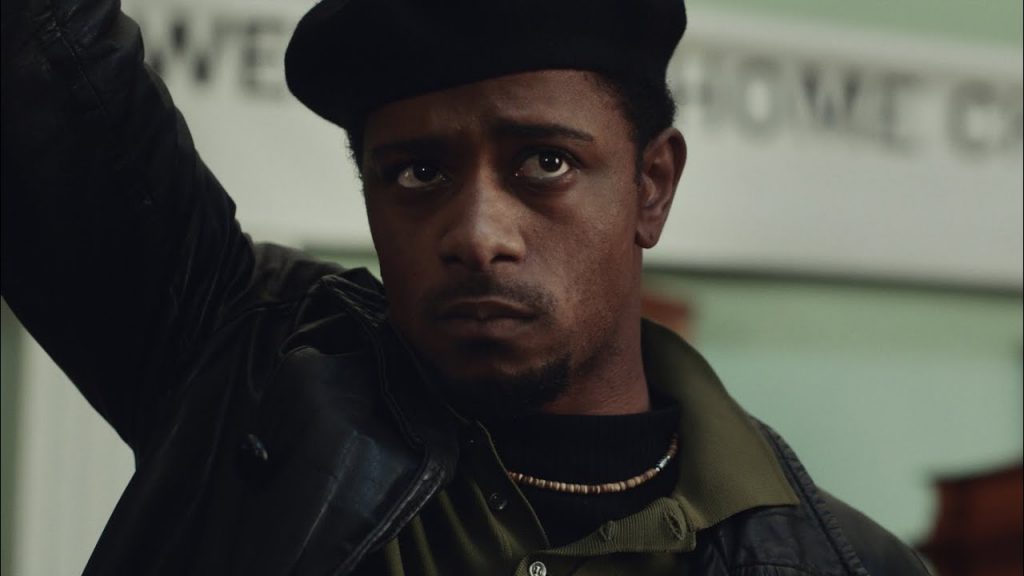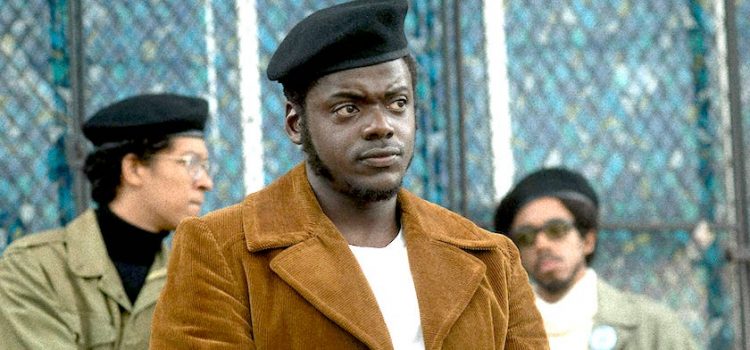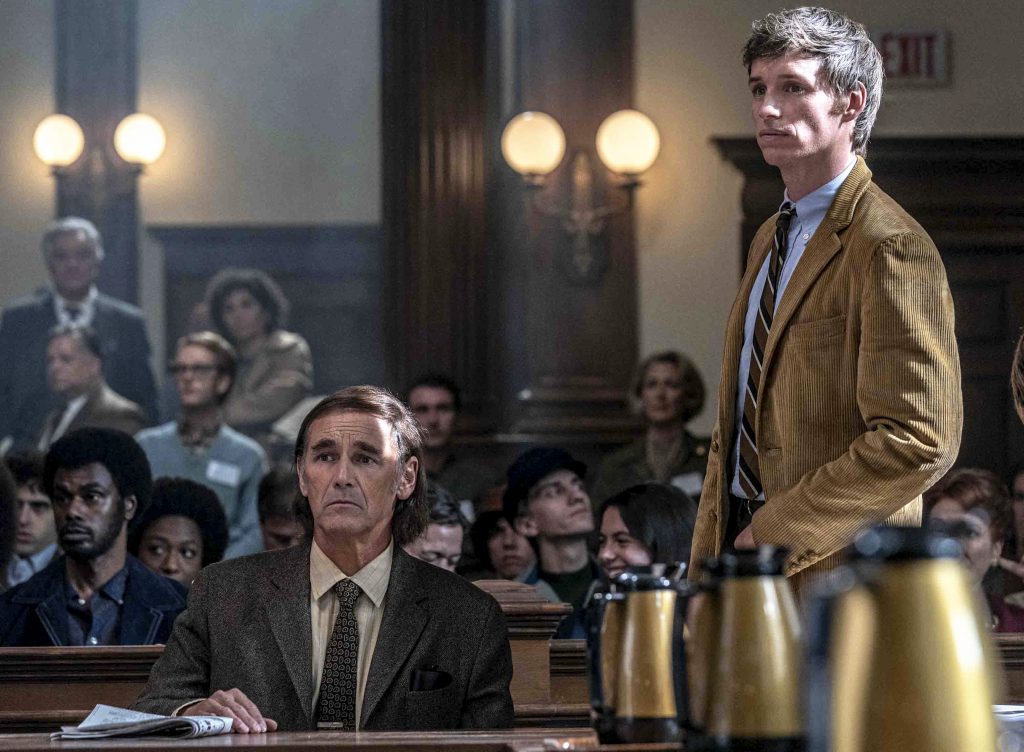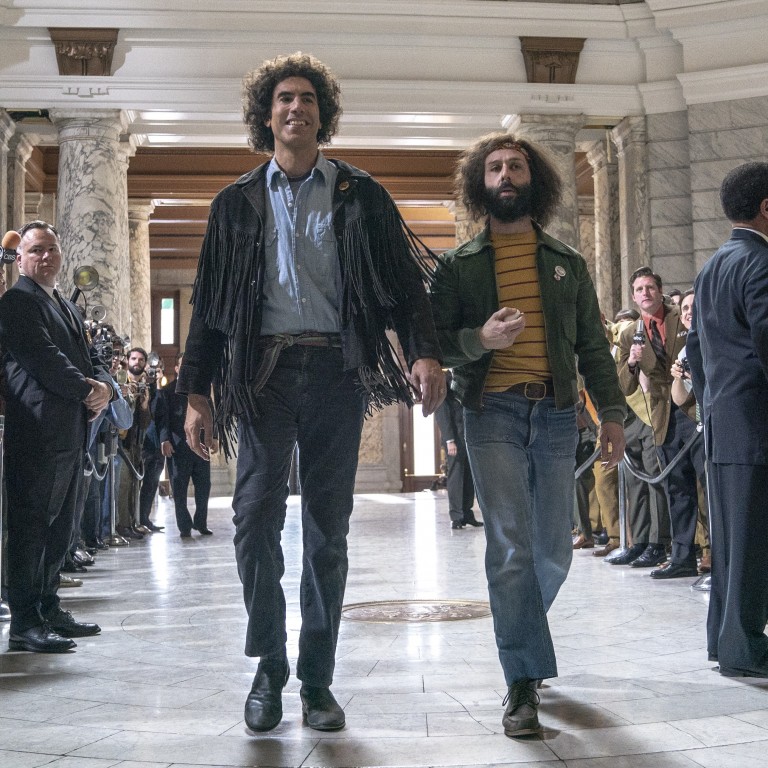By Alex McPherson
Director Shaka King’s new film, “Judas and the Black Messiah,” is a visceral exploration of resistance, sacrifice, betrayal, and legacy.
The film takes place in late 1960s Chicago, where tensions are high between the Illinois Black Panther party and law enforcement. Amid the aftermath of recent political assassinations, Panther Deputy Chairman Fred Hampton (Daniel Kaluuya) is growing increasingly influential. Hampton, only 21 years old, is a passionate leader who seeks to advance the self-determination of black people to rebel against injustice, calling for cultural revolution. He establishes programs providing food, education, and medical care to local communities. He also unites disparate groups across Chicago under shared fury at the powers that be, including an all-white group called the Young Patriots.
Despite all that Hampton does for the community, however, FBI director J. Edgar Hoover, monstrously played by Martin Sheen, sees Hampton’s growing impact as a threat and formulates a plot to eliminate him by any means necessary. FBI agent Roy Mitchell, played with surprising nuance by Jesse Plemons, recruits a youthful, petty criminal named William O’Neal (Lakeith Stanfield) to infiltrate the Black Panther Party and become an informant, in exchange for his freedom from jail time. As O’Neal starts ascending through the ranks — eventually becoming Hampton’s security chief — he starts to question what he’s doing and whose side he’s really on.
The following events are often enraging and sobering. Indeed, “Judas and the Black Messiah” is a deeply moving film, depicting its subjects with depth while spotlighting historical events that remain scarily relevant today.
Through focusing on a condensed period of time, King’s film isn’t a mere biopic of Hampton or O’Neal. Rather, viewers are thrown into a warzone twisted by prejudice and misinformation. This was a volatile period in Chicago’s history, as well as a formative time for several of the film’s subjects. As Hampton’s political prowess grows, so do the malevolent machinations operating behind the scenes. Through the film’s crisp cinematography, expressive score, and harrowing scenarios, we can practically taste the danger in the air. The suspense is palpable, both of cultural change and of violence looming on the horizon.
It’s a bold decision to frame the proceedings through O’Neal’s perspective. Though his actions are often reprehensible, “Judas and the Black Messiah” paints him in an empathetic fashion, where we can see his inner turmoil. Trapped in a precarious situation, both the manipulator and the manipulated, O’Neal is an intriguing enigma throughout the film. “Judas and the Black Messiah” contains several nail-biting scenes where O’Neal escapes by the skin of his teeth — slyly grinning to himself when the coast is clear, but also realizing the constant danger he’s in, and his own growing attachment to the Panther cause.
Stanfield’s performance is downright incredible, capturing O’Neal’s selfishness and slippery nature, but also his discomfort and mental conflict as the film progresses. Although some viewers may take issue with his lack of clear-cut motivation, King and co-writer Will Berson refuse to simplify him for entertainment purposes. O’Neal is a flawed individual, who we may never truly understand. In the film, he comes across as a tragic figure, battling for a sense of self amid delusion, propaganda, and frontline interaction with the Panthers themselves.
This lends the proceedings an uncomfortable tone, as we simultaneously care about O’Neal, but also reel from the actions he takes to undermine the Panthers’ cause. Although I appreciate his complex portrayal, “Judas and the Black Messiah” misses an opportunity to elaborate on his attachment, or lack thereof, to the Panthers. The film rushes through his time spent in the Party early on, and the film’s emotional core could have been strengthened by showing more of his interactions with Hampton in particular.
Hampton isn’t portrayed quite as three-dimensionally as O’Neal, but the film effectively establishes his skills as an orator and as someone who truly cares about the people he’s serving. Kaluyya gives a powerful, soaring performance, where Hampton’s bravery as a leader is on full display. His girlfriend, Deborah Johnson (Dominique Fishback), helps him mature over the course of the film, as he reckons with the weight of his responsibilities for his personal life and the legacy he leaves behind.
We also get several quieter scenes of Hampton reflecting on his life, helping to ground his character in relatable, personable emotions beneath his in-your-face persona. He reckons with how he’s perceived by the FBI, along with the consequences his passionate rhetoric has on his followers. While I wish the film had provided more of these intimate moments, “Judas and the Black Messiah” showcases the tragedy of a groundbreaking life of activism cut short by forces emboldened by racism and lust for power.
Despite the film’s missed potential in exploring the relationship between Hampton and O’Neal, “Judas and the Black Messiah” remains a must-watch cinematic experience — spotlighting a heroic figure, while encouraging viewers to fight for a more equitable world for future generations.

“Judas and the Black Messiah” is a dramatic biopic directed and co-written by Shaka King, starring LaKeith Stanfield, Daniel Kaluuya, Dominique Fishback, Jesse Plemons, Lil Rel Howery, and Martin Sheen. It runs 2 hours 6 minutes. Alex’s Rating: A- Now playing in theaters and on HBOMax Feb. 12
Alex McPherson is an unabashed pop culture nerd and a member of the St. Louis Film Critics Association.





